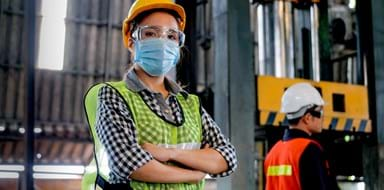LG Davis wanted to streamline its plate-making process, which was carried out manually. They were using two machines which, although were offering a good service, were in need of updating if they were to grow the business further.
Liz said: “We were running two separate computers-to-plate systems – these are the devices that make the plates to go onto our printing presses and are an integral part of our production process.
“Our violet laser plate-making system was outdated, and although semi-automatic, it was slow, still reliant on chemistry and running out of spares and consumables left us at risk of increased costs and downtime.
“Our thermal laser device was using up-to-date technology and was faster and chemistry-free but it was manual and was starting to get output errors.
“We also had to run two separate maintenance contracts. It was time to update the plate systems if we wanted to continue to grow the business while still maintaining our great levels of customer service and delivery as it was becoming clear the current system would not work as we grew.”
The firm’s directors wanted to put in place an automatic plate-making machine. This would change how the company produced plates by automating the process and enabling a fast turnaround and increased output of plates with less manual intervention, reducing lead times and improving efficiency throughout the business.
Liz heard about Made Smarter and felt the programme would be hugely beneficial which led to Paul Sullivan, Industrial Digital Transformation Specialist at Made Smarter for Birmingham, coming to visit the company to explain the benefits of the scheme and how he felt it would improve the business.
The Manufacturing Technology Centre (MTC) – acting as one of Made Smarter’s strategic partners in the West Midlands – also visited the business with Neill Smith compiling a digital report, detailing how they could make changes by introducing an automated machine.






